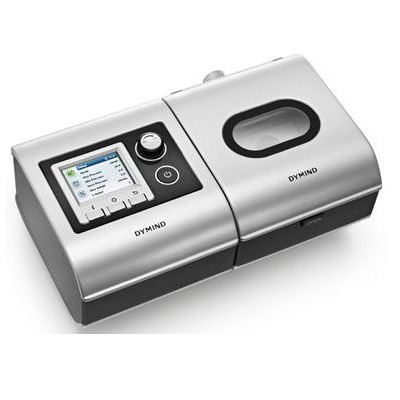GI Bleeding Raises Colorectal Cancer Risk in Anticoagulated Patients
|
By HospiMedica International staff writers Posted on 24 Feb 2020 |
A new study reveals that in anticoagulated atrial fibrillation (AF) patients, gastrointestinal (GI) bleeding confers a high absolute risk of incident colorectal cancer (CC).
Researchers at Gentofte University Hospital (Hellerup, Denmark), Aalborg University Hospital (Denmark), the University of Copenhagen (KU; Denmark), and other institutions conducted a study involving 125,418 AF patients who began oral anticoagulant (OAC) therapy in order to investigate to what extent lower GI tract bleeding represents the unmasking of an occult CC. In all, 2,576 patients with GI bleeding were identified, of whom 140 were diagnosed with CC.
The results revealed that in all age groups, high risks of CC after lower GI tract bleeding were observed, with the absolute one-year risk ranging from 3.7% in the age groups younger than 65, and up to 8.1% in the 76 to 80 years of age group. Overall, OAC patients with lower GI tract bleeding had a 10-15 fold increased one year risk for a diagnosis of CC if they were older than 65, and 24 times that risk if they were 65 or younger, compared with those without GI bleeding on OAC. The study was published on February 7, 2020, in the European Heart Journal.
“Patients should be informed when initiating treatment with anticoagulants that blood in the stool should not be dismissed as a benign consequence of OAC therapy, but always examined for a potential underlying malignant cause,” said lead author Peter Vibe Rasmussen, MD, of Gentofte University Hospital and KU. “We think our data support that all eligible patients presenting with a sign or symptom of lower GI bleeding should be offered examinations to rule out cancer.”
Patients with AF are routinely treated with OACs as the primary therapeutic strategy for preventing stroke. Bleeding complications following OAC treatment are relatively frequent, and GI tract bleeding is considered a well-known marker of malignant lesions in the lower GI tract. OAC therapy has previously been hypothesized as a ‘stress-test’, which could potentially unveil an occult colorectal CC.
Related Links:
Gentofte University Hospital
Aalborg University Hospital
University of Copenhagen
Researchers at Gentofte University Hospital (Hellerup, Denmark), Aalborg University Hospital (Denmark), the University of Copenhagen (KU; Denmark), and other institutions conducted a study involving 125,418 AF patients who began oral anticoagulant (OAC) therapy in order to investigate to what extent lower GI tract bleeding represents the unmasking of an occult CC. In all, 2,576 patients with GI bleeding were identified, of whom 140 were diagnosed with CC.
The results revealed that in all age groups, high risks of CC after lower GI tract bleeding were observed, with the absolute one-year risk ranging from 3.7% in the age groups younger than 65, and up to 8.1% in the 76 to 80 years of age group. Overall, OAC patients with lower GI tract bleeding had a 10-15 fold increased one year risk for a diagnosis of CC if they were older than 65, and 24 times that risk if they were 65 or younger, compared with those without GI bleeding on OAC. The study was published on February 7, 2020, in the European Heart Journal.
“Patients should be informed when initiating treatment with anticoagulants that blood in the stool should not be dismissed as a benign consequence of OAC therapy, but always examined for a potential underlying malignant cause,” said lead author Peter Vibe Rasmussen, MD, of Gentofte University Hospital and KU. “We think our data support that all eligible patients presenting with a sign or symptom of lower GI bleeding should be offered examinations to rule out cancer.”
Patients with AF are routinely treated with OACs as the primary therapeutic strategy for preventing stroke. Bleeding complications following OAC treatment are relatively frequent, and GI tract bleeding is considered a well-known marker of malignant lesions in the lower GI tract. OAC therapy has previously been hypothesized as a ‘stress-test’, which could potentially unveil an occult colorectal CC.
Related Links:
Gentofte University Hospital
Aalborg University Hospital
University of Copenhagen
Latest Critical Care News
- Ingestible Capsule Monitors Intestinal Inflammation
- Wireless Implantable Sensor Enables Continuous Endoleak Monitoring
- Pulse Oximeter Index Offers Non-Invasive Guides for Fluid Therapy
- Wearable Patch for Early Skin Cancer Detection to Reduce Unnecessary Biopsies
- 'Universal' Kidney to Match Any Blood Type
- Light-Based Technology to Measure Brain Blood Flow Could Diagnose Stroke and TBI
- AI Heart Attack Risk Assessment Tool Outperforms Existing Methods
- Smartphone Imaging System Enables Early Oral Cancer Detection
- Swallowable Pill-Sized Bioprinter Treats GI Tract Injuries

- Personalized Brain “Pacemakers” Could Help Patients with Hard-To-Treat Epilepsy
- Microscopic DNA Flower Robots to Enable Precision Medicine Delivery
- Origami Robots to Deliver Medicine Less Invasively and More Effectively
- Improved Cough-Detection Technology Aids Health Monitoring
- AI Identifies Children in ER Likely to Develop Sepsis Within 48 Hours
- New Radiofrequency Therapy Slows Glioblastoma Growth
- Battery-Free Wireless Multi-Sensing Platform Revolutionizes Pressure Injury Detection
Channels
Surgical Techniques
view channel
Robotic Assistant Delivers Ultra-Precision Injections with Rapid Setup Times
Age-related macular degeneration (AMD) is a leading cause of blindness worldwide, affecting nearly 200 million people, a figure expected to rise to 280 million by 2040. Current treatment involves doctors... Read more
Minimally Invasive Endoscopic Surgery Improves Severe Stroke Outcomes
Intracerebral hemorrhage, a type of stroke caused by bleeding deep within the brain, remains one of the most challenging neurological emergencies to treat. Accounting for about 15% of all strokes, it carries... Read morePatient Care
view channel
Revolutionary Automatic IV-Line Flushing Device to Enhance Infusion Care
More than 80% of in-hospital patients receive intravenous (IV) therapy. Every dose of IV medicine delivered in a small volume (<250 mL) infusion bag should be followed by subsequent flushing to ensure... Read more
VR Training Tool Combats Contamination of Portable Medical Equipment
Healthcare-associated infections (HAIs) impact one in every 31 patients, cause nearly 100,000 deaths each year, and cost USD 28.4 billion in direct medical expenses. Notably, up to 75% of these infections... Read more
Portable Biosensor Platform to Reduce Hospital-Acquired Infections
Approximately 4 million patients in the European Union acquire healthcare-associated infections (HAIs) or nosocomial infections each year, with around 37,000 deaths directly resulting from these infections,... Read moreFirst-Of-Its-Kind Portable Germicidal Light Technology Disinfects High-Touch Clinical Surfaces in Seconds
Reducing healthcare-acquired infections (HAIs) remains a pressing issue within global healthcare systems. In the United States alone, 1.7 million patients contract HAIs annually, leading to approximately... Read moreHealth IT
view channel
Printable Molecule-Selective Nanoparticles Enable Mass Production of Wearable Biosensors
The future of medicine is likely to focus on the personalization of healthcare—understanding exactly what an individual requires and delivering the appropriate combination of nutrients, metabolites, and... Read moreBusiness
view channel
Philips and Masimo Partner to Advance Patient Monitoring Measurement Technologies
Royal Philips (Amsterdam, Netherlands) and Masimo (Irvine, California, USA) have renewed their multi-year strategic collaboration, combining Philips’ expertise in patient monitoring with Masimo’s noninvasive... Read more
B. Braun Acquires Digital Microsurgery Company True Digital Surgery
The high-end microsurgery market in neurosurgery, spine, and ENT is undergoing a significant transformation. Traditional analog microscopes are giving way to digital exoscopes, which provide improved visualization,... Read more
CMEF 2025 to Promote Holistic and High-Quality Development of Medical and Health Industry
The 92nd China International Medical Equipment Fair (CMEF 2025) Autumn Exhibition is scheduled to be held from September 26 to 29 at the China Import and Export Fair Complex (Canton Fair Complex) in Guangzhou.... Read more














